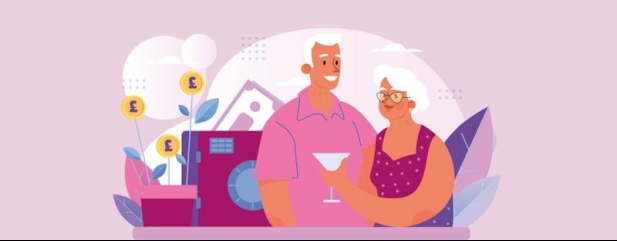Have the rules changed on how pensions are taxed when you die?

I have read that there was a HMRC consultation on the abolition of the lifetime allowance which contained a proposal that from April 2024 untouched pension pots would be subject to income tax when they were passed on death. Whereas now the pot is not taxed if the individual dies before age 75.
I would be grateful if you would advise whether this proposal was approved and will come into effect from 6 April 2024.
Lorraine
Rachel Vahey, AJ Bell Head of Public Policy, says:
From 6 April 2024, the pensions lifetime allowance (LTA) will disappear. In its place will be two new allowances. The lump sum allowance (LSA) will limit how much can be paid as tax-free lump sums in life. This is usually set at £268,275. The second allowance – lump sum and death benefit allowance (LSDBA) - will limit how much can be paid as tax-free lump sums on death. This usually starts as £1,073,100 and will be reduced by any tax-free lump sums paid out in life.
Last summer, when HMRC published its first draft of the rules, it proposed any untouched pension funds passed on as pension income on death should always be subject to income tax, even if the pension saver died before age 75. I’m glad to say it has since reversed its position on this.
If a pension saver dies before age 75 their beneficiaries can take tax-free lump sums up to the pension saver’s remaining LSDBA. Any excess above that limit will be taxed as income for the beneficiary (or 45% if paid to a trust). However, in working out whether the limit has been breached, pension savers ignore any lump sums paid from drawdown set up before 6 April 2024.
(That’s if the pension funds are paid within two years of the pension scheme being told about the pension saver’s death. If it’s longer than two years, then tax is due on the whole payment.)
If the pension funds are passed on as an income before age 75 – then they will always be tax free, regardless of the amount. There is no check against the LSDBA.
WHAT ARE THE OPTIONS FOR A BENEFICIARY?
Once the funds are in a beneficiary’s drawdown plan, the beneficiary can take them out gradually – as regular or ad-hoc payments – or even all of the funds in one go. It doesn’t matter. The payments will still be tax free if the pension saver died before age 75.
If the pension saver died after age 75, then the payments are always taxed as income for the beneficiary – whether they are paid as a lump sum or if they are taken as an income.
Having the ability to choose a beneficiary’s drawdown plan, therefore, could be extremely tax advantageous for a pension saver’s loved ones.
If they have not already touched their pension benefits, pension savers may want to check with their pension provider that it’s possible for their beneficiaries to set up a flexi-access drawdown plan. Some pension schemes don’t offer this feature.
If a pension saver already has a drawdown plan, then they may want to make sure their loved ones can inherit their funds through drawdown. They can do this by completing a nomination or expression of wish form.
Despite earlier musings by HMRC, the tax rules on inherited pension funds remain very tax efficient.
Important information:
These articles are provided by Shares magazine which is published by AJ Bell Media, a part of AJ Bell. Shares is not written by AJ Bell.
Shares is provided for your general information and use and is not a personal recommendation to invest. It is not intended to be relied upon by you in making or not making any investment decisions. The investments referred to in these articles will not be suitable for all investors. If in doubt please seek appropriate independent financial advice.
Investors acting on the information in these articles do so at their own risk and AJ Bell Media and its staff do not accept liability for losses suffered by investors as a result of their investment decisions.

 magazine
magazine








